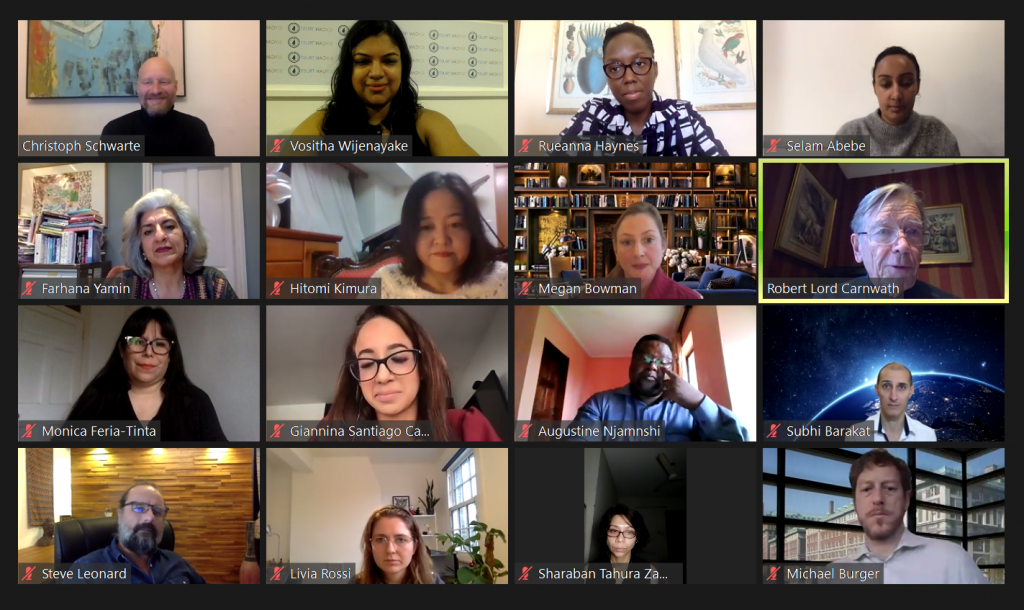
The Paris Agreement to combat climate change was adopted on 12 December 2015. To mark the occasion, LRI held a one-hour Zoom webinar for leading climate lawyers from around the globe who presented their ideas (in 3 minutes each) for the next steps in the UNFCCC process, specifically in the leadup and during COP26 in the UK in 2021. You can watch the recording on youtube at https://www.youtube.com/watch?v=5ayPHNSx8FQ and access a summary report of the event at https://legalresponse.org/legaladvice/putting-the-law-at-the-heart-of-the-paris-agreement/
Speakers included:
• Michael Burger, Sabin Centre for Climate Change Law in the US
• Augustine Njamnshi, Pan African Climate Justice Alliance (PACJA)
• Dennis van Berkel, Urgenda Foundation
• Hitomi Kimura, Otsuma Women’s University
• Megan Bowman, King’s College London
• Rueanna Haynes, Climate Analytics
• Selam Abebe, Legal Adviser African Group of Negotiators, and
• Farhana Yamin Founder Track 0 & and second on the BBC’s Woman’s Hour Power List in 2020, as well as many others.
Some participants suggested new initiatives in the negotiations to, for example, operationalise the global adaptation goal (Selam Abebe) or the establishment of an independent expert group to assess whether NDCs are in line with equity and common but differentiated responsibilities (Dennis van Berkel). Monica Feria-Tinta (a barrister at Twenty Essex Chambers) underlined the need for domestic legal systems that address human rights violations due to climate change. Megan Bowman of King’s College London argued that every public sector investment decision needs to take account of Article 2.1 c) of the Paris Agreement which envisages the redirection of financial flows in line with low carbon development.
Augustine Njamnshi (Pan African Climate Justice Alliance) called for a trust building dialogue amongst parties during the COP in Glasgow to accept past responsibilities and move jointly into a new direction based on empathy. Other issues covered during the event included the role of best available science, intergenerational equity and zero emissions as well as a rights-based ecosystem approach for a just recovery and climate litigation.
